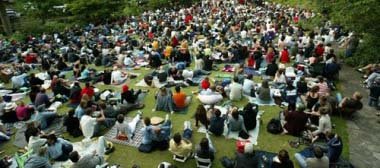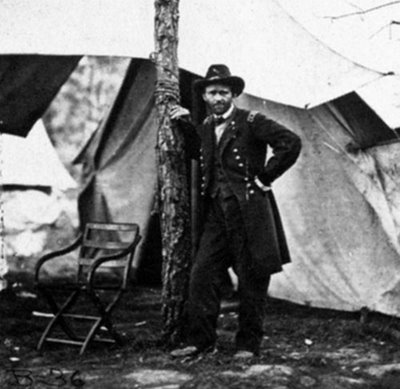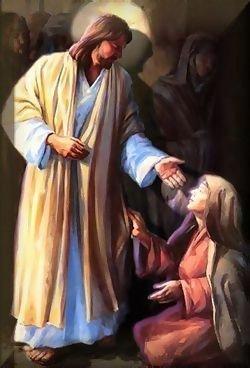Make Room in the Grass

The 17th Sunday in Ordinary Time
Today’s Readings: 2 Kgs 4:42-44; Ps 145; Eph 4:1-6; Jn 6:1-15 [Link]
When we read our weekly gospel passages at mass, sometimes I feel like we’ve wandered into the room in the middle of a movie on TV. You can pick up the thread of the story, but then again, you’ve missed the context of what came before.
I think that’s very true today. We jump right into the story of Jesus going across the Sea of Galilee and performing the wonderful miracle of multiplying the loaves and fishes—without the context of what he was doing there in the first place.
Actually, Jesus—who was like us ordinary people in all ways except sin—was in shock and in mourning. Word had just come to him that his beloved friend and cousin—his forerunner—John the Baptist, had been yanked out of his prison cell and brutally executed, by beheading, at the behest of Herod. I’m sure you remember the story of Salome asking for John’s head on a platter. Jesus needed some time alone. So he went off to one of his favorite get-away spots, the seashore.
Already by this point in his career, Jesus was attracting a big following. Picture some celebrity being followed around by fans and supporters and groupies. Maybe a movie star or politician or a famous athlete… even if that person needs some private time, unfortunately not too many folks will respect those boundaries.
But unlike a disgruntled movie star who occasionally hauls off and punches a fan or smashes a paparazzo’s camera, Jesus didn’t respond that way. He was the picture of patience and loving compassion, despite everything weighing on his mind. He told Philip and Andrew, “Have the people sit down on the grass.” There were five thousand people there. Try to imagine being in a crowd that big…
Now, there is an amazing lesson of welcoming and inclusiveness in this gospel story. A few verses after the end of today’s passage (Jn 6:23)—see, there’s that context business again!—we read that the feeding of the 5,000 took place near Tiberias, a city on the southwestern shore of the Sea of Galilee. Tiberias was the Roman capital of the province.
No Jew would live there, because Tiberias had been built on a site where there were ancient tombs. In fact, most Jews wouldn’t even set foot in that city. Yet think about the crowd of people there. The multitude would have included Jews, Samaritans, Gentiles, Romans, soldiers, slaves, slave owners, women, children, lepers, the sick, Pharisees, priests, and a hodge-podge of the people called unclean and sinners. Truly, the crowd was a cross-section of people from all walks of life.
Jesus told the people to sit down to eat together. Actually, our gospel today uses the word “recline”: Jesus said, “Have the people recline.” That was the posture of the disciples at the Last Supper. In the culture of the day, people would not eat with others who were not of their same social rank, race, politics, religion, class, race or gender. To recline to eat made a person vulnerable to others. In fact, one of the most persistent customs of the Arabs in Palestine today is the practice of not eating with anyone who is a stranger or who might not be trustworthy.
What’s new and remarkable about today’s lesson is not the miracle of multiplying food. There was a lot of that in the bible. Moses gave manna to the children of Israel in the wilderness. Elijah multiplied a widow’s tiny bit of flour and oil so she could feed herself and her son for a year. In our first reading today, Elijah’s disciple, Elisha, multiplies a few barley loaves to feed a hundred people.
No, the new and remarkable thing about today’s episode is that all of the people from widely diverse lives and lifestyles for the first time sat down together to eat! This had never before happened in the history of Israel. It was the truly remarkable new beginning of including everybody in Christ.
When everyone had eaten, the disciples gathered up twelve baskets of fragments. Also pay attention when the Scriptures mention numbers, because numbers are significant and sometimes even mystical. The twelve baskets are a reminder of the twelve tribes of Israel. Just like the twelve apostles, this is another indication of the “new people of God” brought together in unity because of Jesus. The fragments were gathered so nothing should be lost. Nobody was, or ever would be, left out of this magnificent feast with Jesus!
I hope this story makes you feel good and warm all over. But let me burst your bubble a bit. What Jesus tried to teach us in Tiberias is often given a lot of lip service, but is not practiced.
I related to Jesus’ mourning for John the Baptist, because earlier this week, I offered an anniversary mass for a dear friend of mine named Mark who tragically died ten years ago. He died of AIDS. He suffered a horrible and painful kind of dying; I wouldn’t wish it on my worst enemy. And even though it’s not polite to talk about how people pick up a disease like this, yes, he was gay.
When the disease had gotten to the “obvious” point, he was done hiding in the closet and playing games. He came out to his family, and praise God, they embraced him with deep love and compassion. He reconciled with God and the Church, too. So in the end, he had a beautiful death.
Mark would have been among the 5,000 people in Tiberias whom Jesus loved and fed… but gee, he wouldn’t have felt too welcome in many—maybe most—Catholic or Christian churches in the year 2006.
Others among those 5,000 who tend to get the cold-shoulder in our churches today: people who’ve been in prison or had trouble with the law… the divorced and remarried… the fallen-away… mixed-race couples and their kids… politicians who support certain positions—and politicians who don’t support certain positions… and lots of other groups and categories of people. In the name of Jesus Christ, in the name of Christian morality, in the name of the Holy Church—we cross off those people. We find them unworthy to recline with us.
As today’s gospel demonstrates very vividly, Jesus does not reject those people; we do.
Many of you are parents. How would you feel if somebody rejected your child? Yeah, that’s how Jesus feels, too.
The simple lesson is: don’t do that anymore. Instead, scoot over a bit and make room on a nice grassy patch next to you. Smile and say, “Hey, why don’t you come sit here next to me and have something to eat.”




